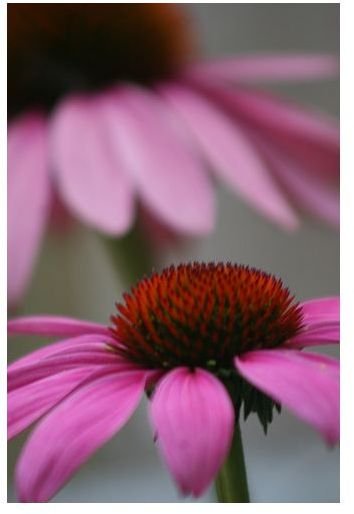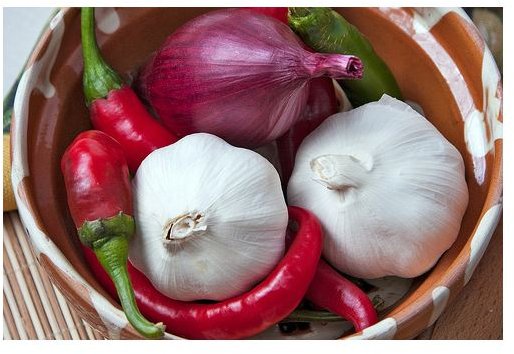Using Natural Remedies for a Sinus Infection
Symptoms and Causes
A sinus infection is characterized by a runny nose, post-nasal drip, sore throat and pain behind the eyes, in the upper jaw, and around the forehead. All of this pressure and dripping is the result of inflamed and clogged sinus passageways. The mucous build-up and inflammation is the result of an infection, which the body may be more susceptible to because of allergies.
Natural remedies for a sinus infection involve the use of several therapies at the same time to drain the mucous, relieve the inflammation, and of course, fight the infection. Integrating dietary changes and healing herbal infusions with therapeutic steam you will feel better and your body will be capable of overcoming the infection.
Changes to Diet
Addressing diet is fundamental for getting over a sinus infection as what you eat can either lead to more mucous or encourage healing. Avoid or at least minimize dairy products (except for yogurt), starchy foods, red meat, and processed and sugary foods when fighting an infection. Eat lots of fresh, raw fruits and vegetables, nuts, and seeds to supply the body with nutrients while at the same time encouraging cleansing. Drink lots of fluids — eight glasses of clean water a day as well as fresh juices, such as carrot, pineapple, apple, and papaya. Drink hot liquids throughout the day, including both herbal teas and soups.
Foods to focus on that will improve the healing process include garlic, onions, ginger, horseradish, and cayenne pepper. These foods will stimulate the drainage of mucous while also helping to fight the infection. Garlic, onions, and cayenne all also have anti-microbial properties. A glass of water with fresh lemon juice each morning will help to thin the mucous.
Herbal Infusions
Drinking herbal teas is the second facet of treating sinus infections with natural remedies. This is an ideal way to continually drink hot liquids while providing the medicinal benefits of herbs. To make an herbal infusion use two teaspoons in total of dried herbs for every one cup of boiling water. Cover and steep for ten minutes and then drink when cooled to a tolerable level.
Make a tea with equal parts of the following herbs:
- Echinacea is an anti-microbial, immune-boosting herb that will help to fight the infection
- Mullein helps to reduce inflammation
- Marshmallow root will sooth inflamed mucus membranes
- Elder flower or golden rod will help to relieve the nasal congestion
Other beneficial herbs for assisting the healing process include peppermint, red clover, nettles, and rose hips.

The Benefits of Steam
Steam is another natural remedy that can relieve a sinus infection. Warm steam will loosen mucous and make it easier to breath. Adding herbs or essential oils to the water will impart the beneficial properties of the plants. For sinus relief fill a bowl with about two quarts of boiling water. Add three to four drops of any of the following essential oils or blend together, using four drops in total:
- Chamomile for its anti-inflammatory and anti-microbial properties
- Eucalyptus has natural decongestant properties
- Peppermint will stimulate drainage and relieve congestion
- Pine essential oil will also help to clear nasal passages
Breathe in the steam for about ten minutes, keeping the head about six inches from the water. You can also use fresh herbs, placing three teaspoons of dried herbs in the bowl and then adding the boiling water. Use eucalyptus leaves, mullein, chamomile, or aniseed.
Another natural, soothing therapy for sinus infections is to take a hot bath for the herbal steam relief. Add five to eight drops of any of the above listed essential oils to a cup of water or a teaspoon of oil and swirl into bath water. Soak for ten to twenty minutes for sinus relief.
Using these natural remedies for a sinus infection will ease symptoms while also encouraging healing. Combining diet, herbal teas, and steam therapy will have the most potent effect. To maintain good health and prevent further infections make sure you are eating a healthy diet, getting regular exercise, and making healthy lifestyle choices.
References
Balch, Phyllis A. “Prescription for Nutritional Healing.” Fourth Edition (Penguin Books, 2006).
Hoffmann, David. “The Complete Illustrated Holistic Herbal: A Safe and Practical Guide to Making and Using Herbal Remedies.” (Element Books, 1996).
Page, Linda. “Healthy Healing: A Guide to Self-Healing for Everyone.” Eleventh Edition (Traditional Wisdom, 2003).
photo by Horia Varlan
photo by David Light
Disclaimer
Please read this disclaimer regarding the information contained within this article.
